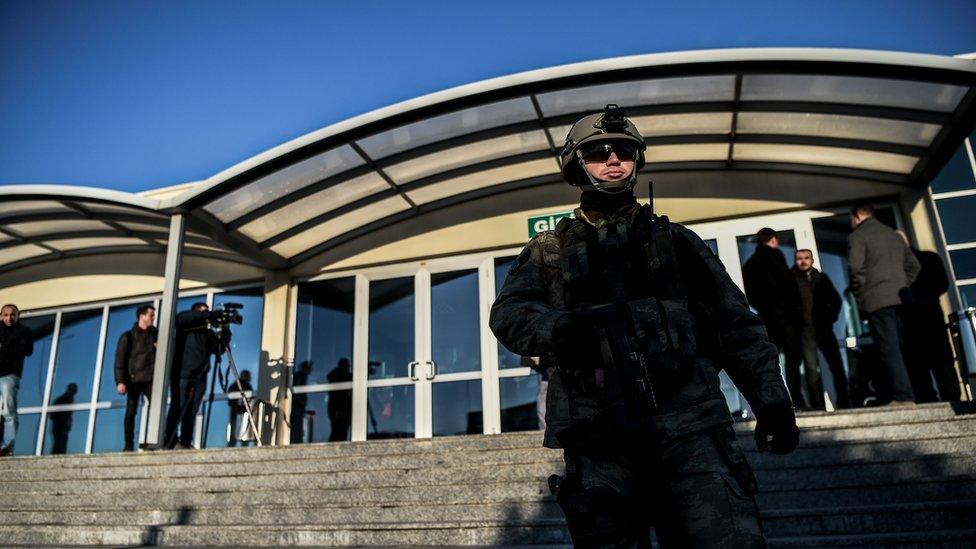Turkish police in court for first Istanbul trial over coup plot
- Published

The trial took place at the large Silivri jail complex amid high security
Twenty-nine police officers have gone on trial in a Turkish prison accused of trying to overthrow the government in the failed July coup.
It is the first trial of alleged plotters to take place in Istanbul since the abortive coup.
Turkey has arrested some 40,000 people and sacked even more after parts of the army and police tried to oust President Recep Tayyip Erdogan.
The coup was blamed on US-based Islamic cleric Fetullah Gulen.
He has denied the allegations but the Turkish president has warned that the Gulenist movement is still active within Turkey.
The murder of Russian ambassador Andrei Karlov by an off-duty policeman has also been linked to Gulenists, although the gunman shouted slogans about the Syrian city of Aleppo before he was shot dead.
No cause for optimism in divided Turkey
The human impact of Turkey's purges
Turkey torture claims in wake of failed coup
The four-day trial began on Tuesday amid high security at the large Silivri jail complex on the outskirts of Istanbul.
Twenty-one of the 29 police officers face life terms if found guilty of taking part in the failed coup. They are all accused of following Fetullah Gulen as well as failing to follow orders and carry out their duty to protect the president.
Eight of the accused face lesser sentences.
Although smaller-scale trials have taken place elsewhere in Turkey, this was the first major case in Turkey's biggest city.
The purge of suspected Gulenists has spread throughout Turkey's state apparatus. Critics accuse the government of using the failed coup to hit back at opponents.
A judge on Monday remanded in custody a cook who works at an opposition newspaper on a charge of insulting the president. The cook, Senol Buran, is alleged to have told police he would not serve President Erdogan a cup of tea.
The Silivri court where Tuesday's trial took place was first built to try top-ranking officers who were convicted three years ago of an earlier plot.
Turkish commentators say that the case, known as Ergenekon, was orchestrated by Gulenists against the military.